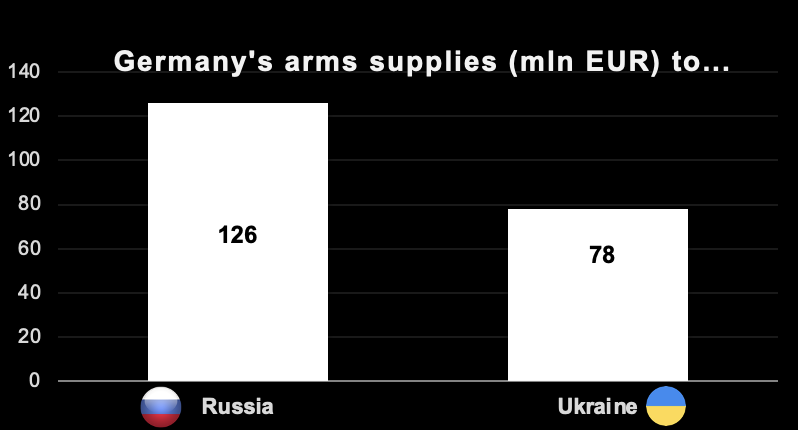
Hey Twitter folks,
I’m starting a new fundraiser for medical supplies for the defenders of Ukraine.
I want to raise $10 thousand over the next week, and I am asking for your help. [Thread below]
#ProtectUkrainianDefenders
I’m starting a new fundraiser for medical supplies for the defenders of Ukraine.
I want to raise $10 thousand over the next week, and I am asking for your help. [Thread below]
#ProtectUkrainianDefenders
2/
If we raise this amount, I will be able to buy these life-saving things for our brave soldiers fighting in the East:
☑️ 200 CAT tourniquets;
☑️ 100 large combat gauze packs;
☑️ 100 Israeli bandages;
☑️ 100 chest seals;
☑️ 20 decompression needles.
If we raise this amount, I will be able to buy these life-saving things for our brave soldiers fighting in the East:
☑️ 200 CAT tourniquets;
☑️ 100 large combat gauze packs;
☑️ 100 Israeli bandages;
☑️ 100 chest seals;
☑️ 20 decompression needles.
3/
❗️I discussed these needs with servicemen from legendary 93rd Brigade of 🇺🇦 Armed Forces.
Here's what they wrote to me:
➕Commander of the artillery unit: “Thank you for help! Together to the victory”.
➕A combat medic: “Everything is right on that list”.
❗️I discussed these needs with servicemen from legendary 93rd Brigade of 🇺🇦 Armed Forces.
Here's what they wrote to me:
➕Commander of the artillery unit: “Thank you for help! Together to the victory”.
➕A combat medic: “Everything is right on that list”.
4/ Do you want to donate? You can use 3 payment options:
1⃣ for transfers in Euro - IBAN: NL67INGB0749194901
2⃣ for transfers in $ - IBAN: UA633052990262076400933278020
3⃣ with PayPal: evgen.fundraising@gmail.com
Exact payment details are available here: medium.com/@vorobyov/evge…
1⃣ for transfers in Euro - IBAN: NL67INGB0749194901
2⃣ for transfers in $ - IBAN: UA633052990262076400933278020
3⃣ with PayPal: evgen.fundraising@gmail.com
Exact payment details are available here: medium.com/@vorobyov/evge…
5/
I would also appreciate donations in kind, that's how it can work:
- you DM me saying how much you want to spend;
- I send you a link to a relevant product;
- you pay for it yourself and indicate a delivery address in the US or in Netherlands;
- you inform me about the order
I would also appreciate donations in kind, that's how it can work:
- you DM me saying how much you want to spend;
- I send you a link to a relevant product;
- you pay for it yourself and indicate a delivery address in the US or in Netherlands;
- you inform me about the order
6/
I have gifts for donors!
☑️A sheet of new Ukrposhta stamps (left) go to 18 donors of largest amounts over 1 week;
☑️10 magnets w/ hand-made folk painting (right) from a Dnipro artist go to first 10 donors (except above).
+Top 2 donors will get memorabilia from th 93rd Brigade

I have gifts for donors!
☑️A sheet of new Ukrposhta stamps (left) go to 18 donors of largest amounts over 1 week;
☑️10 magnets w/ hand-made folk painting (right) from a Dnipro artist go to first 10 donors (except above).
+Top 2 donors will get memorabilia from th 93rd Brigade


7/
If you think abt donating but have questions/concerns, please reach out to me, so we can talk in person: DM or email (evgen.fundraising@gmail.com).
I will be posting regular updates about the fundraiser’s progress as we go.
Let’s #ProtectUkrainianDefenders together!
[End]
If you think abt donating but have questions/concerns, please reach out to me, so we can talk in person: DM or email (evgen.fundraising@gmail.com).
I will be posting regular updates about the fundraiser’s progress as we go.
Let’s #ProtectUkrainianDefenders together!
[End]
• • •
Missing some Tweet in this thread? You can try to
force a refresh







